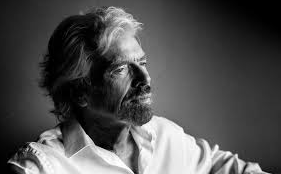On Oct 10, World Day Against the Death Penalty, UK billionaire Richard Branson called out Singapore’s use of capital punishment, particularly for drug
On Oct 10, World Day Against the Death Penalty, UK billionaire Richard Branson called out Singapore’s use of capital punishment, particularly for drug-related crimes, by asking, “What’s the matter with Singapore?” Branson, who previously joined the global call to stay the execution of Malaysian drug trafficker Nagaenthran K Dharmalingam, expressed his concerns in a post on his website.
Nagaenthran, sentenced to death for importing 42.72g of heroin into Singapore in 2009, was executed on April 27, 2022. He was said to have an IQ of 69 and intellectual disabilities, sparking international and local outcry for clemency.
Branson referred to Singapore as a “fascinating and dynamic city-state” but highlighted that its continued use of the death penalty, especially for drug offences, puts the country “on the wrong side of history.” He pointed out that Singapore has conducted 11 executions this year and criticized the circumstances surrounding many cases as damaging to the country’s global reputation.
Focusing on Nagaenthran’s execution, Branson questioned why Singapore did not honor its international commitments to protect individuals with disabilities, even though interventions from UN experts and EU governments were made.
Branson also challenged the assertion by Home Affairs Minister K Shanmugam that the death penalty serves as a deterrent for drug traffickers. He compared Singapore’s approach with Portugal, which abolished the death penalty in 1976 and decriminalized personal drug possession in 2001. Branson noted that contrary to expectations, Portugal saw a decline in drug-related deaths and drug use after the reforms.
Additionally, Branson raised concerns about a potential racial and social bias in Singapore’s death penalty system, as the 11 men executed this year were either Malaysian nationals or of Malay origin. He emphasized that those executed were often small-scale traffickers coerced into the drug trade, while large-scale dealers largely escape punishment.
Branson argued that the death penalty has not effectively curbed drug trafficking and pointed to the harassment of capital defense lawyers and human rights defenders, leading to a shortage of lawyers willing to represent death-row inmates. He highlighted cases where death-row prisoners were left unrepresented in court, including Nagaenthran’s, where his mother had to plea for his life a day before his execution.
Concluding his critique, Branson called Singapore’s capital punishment system “fundamentally broken” and advocated for a shift in drug policy to prioritize public health over criminal justice. “It’s time for Singapore’s death penalty to go,” he wrote. /TISG



COMMENTS